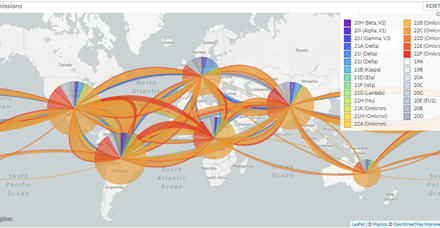On July 15, Simon Boas, a former aid worker who chronicled his journey with cancer, passed away at the age of 47. In a BBC interview conducted shortly before his death, Boas made a poignant statement: “My pain is under control and I’m terribly happy—it sounds weird to say, but I’m as happy as I’ve ever been in my life.”
To many, the idea of finding happiness while nearing the end of life may seem paradoxical. However, for those who work closely with the terminally ill, such as clinical psychologists, this phenomenon is not entirely surprising.
The Psychological Perspective on Dying
William James, an American philosopher, described the knowledge of our inevitable death as “the worm at the core” of the human condition. This idea suggests that the fear of death is deeply embedded in our subconscious. Yet, research indicates that the reality of dying can be far different from our expectations. A study published in Psychological Science found that people nearing death often use more positive language to describe their experiences than those who merely imagine death. This implies that the actual experience of dying may be more pleasant, or at least less distressing, than we anticipate.
Simon Boas’s Insights
In his BBC interview, Boas shared valuable insights about how he came to accept his situation. He emphasized the importance of enjoying life and prioritizing meaningful experiences, suggesting that acknowledging death can enhance our appreciation for life. Despite his pain and the difficulties he faced, Boas’s cheerful demeanor aimed to provide solace to his wife and parents during the challenging times ahead.
Boas’s sentiments resonate with the teachings of the Roman philosopher Seneca, who advised that the length of our lives should be measured by the depth of our experiences rather than the number of our days. Similarly, Viktor Frankl, a psychiatrist and Holocaust survivor, argued in his book Man’s Search for Meaning that discovering meaning in life, even in dire circumstances, can lead to a profound sense of fulfillment. This philosophy underpins meaning-centered psychotherapy, which helps cancer patients enhance their sense of purpose.
What Constitutes Happiness at the End of Life?
Recent studies published in Palliative and Supportive Care and the American Journal of Hospice and Palliative Care have explored what constitutes happiness for those nearing death. Common themes include the importance of social connections, enjoying simple pleasures such as nature, maintaining a positive mindset, and shifting focus from seeking pleasure to finding meaning and fulfillment as illness progresses.
A Personal Encounter: Johan’s Story
In my work as a clinical psychologist, I often meet patients who develop a perspective similar to Boas’s. One patient, whom I’ll call Johan, comes to mind. Johan, diagnosed with a terminal illness, initially walked into my clinic with a slight limp. Over our meetings, his condition deteriorated; he moved from using crutches to a wheelchair. Despite his physical decline, Johan found ways to maintain his happiness and sense of purpose. He watched videos of others cycling around Mont Blanc, a dream he could no longer fulfill himself, and even bought an expensive mountain bike to display in his living room as a symbol of his passion.
Johan’s ultimate goal was to volunteer in domestic care services, appreciating the hard work and incredible contributions of the caregivers who supported him. His story illustrates that even in the face of death, people can find happiness and fulfillment by focusing on what truly matters to them.
The Complexity of Emotions at Life’s End
My experience with patients facing life-threatening diseases reveals that it’s possible to feel happiness alongside a range of other emotions, including sadness, gratitude, remorse, longing, anger, guilt, and relief. The prospect of death often brings a new perspective, allowing individuals to appreciate life more deeply than ever before.
As Simon Boas and others like him have shown, embracing the reality of death can lead to a profound sense of happiness and fulfillment, underscoring the importance of living a meaningful life.












